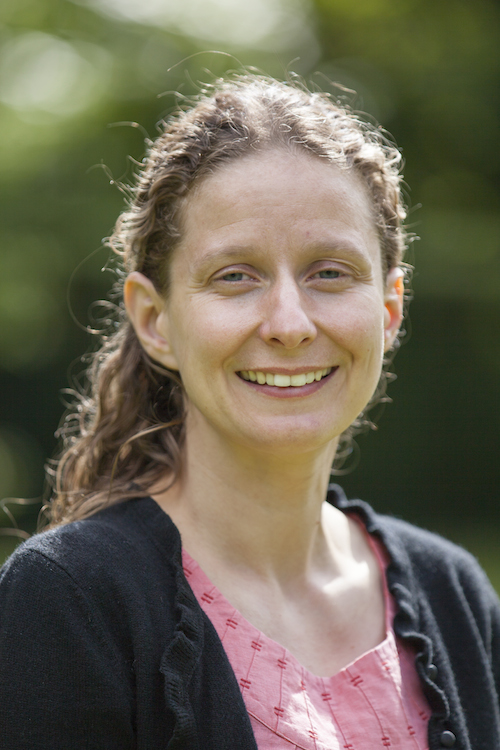
Pixabay
The more capable a person is of feeling awe, the more likely they are to understand the true nature of science. When Helen De Cruz, senior lecturer in Philosophy at Oxford Brookes University, spoke at the Faraday Institute last month, she explained the research that has shown awe moves us to see beyond ourselves, and give us a sense of smallness and humility. We often feel overawed when we are trying to take in something our minds cannot fully grasp. Awe-inspiring experiences, such as seeing a beautiful nature documentary, help us to become more aware of the gaps in our knowledge and want to learn more. It can be hard to accept new scientific theories when you have lived with the same paradigm for years. Emotions such as awe, wonder or curiosity can help shift our attitudes and make us look at the world in different ways. Awe is good for science.
De Cruz also said that the more a person is capable of feeling awe, the more likely they are to feel a sense of oneness and spirituality, to believe in a creator God, or have spiritual experiences. Awe makes us less reliant on stereotypes and mental clichés. We are less likely to take things for granted, accept easy answers, or be open to ambiguity and new ideas. Awe is good for religion.
So awe plays a foundational role in both science and religion. Abraham Heschel wrote that wonder at the world around us is the seed of knowledge, and absolutely fundamental to science. He thought that awe is the only way to become wise. In religion, awe at God is a precursor to faith. The main threat to faith is shutting down our sense of awe and taking things for granted. Some religious practices help us to keep our minds open, stay grateful, notice our surroundings, appreciate wisdom, and so on.
One researcher found that some rituals can take effort, serving to keep people from getting into a rut, and making them less comfortable with lazy routine. You could say that scientific protocols and accountability structures are also there – like rituals – to stop scientists getting lazy, cutting corners, or fooling themselves.
If you take a group of people who are not used to awe and expose them to something that provokes that emotion in them, at first they can become less open to new things. The only way awe can keep our minds open is if we habitually open ourselves up to awe-inspiring experiences. As we practice the feeling of being overwhelmed, amazed, and full of wonder, we can tap into the positive effects of awe.
For De Cruz, awe is fundamental to science because the scientific enterprise is never finished. Awe can help us understand the nature of science by being more tolerant of unsolved questions – of which science is full – and more likely to accept the scientific process rather than insisting on scientific ‘facts’. Experiences of awe can help us leave ego behind and defer to those who know more than us. We need to stay alert to previously unnoticed trends in the data, and be willing to move on in our thinking, getting closer to the truth all the time. She believes that we need awe not just in the practice of science, but also in science education.
I was excited to hear someone making such a direct link between awe and both science and religion. As a Christian, I know that God can be surprising. As a scientist, I know the material world is also full of surprises. If you don’t expect the unexpected, it’s easy to shut down and ignore it. I was intrigued to hear someone else say that awe is good for both science and faith, and to hear how a philosopher can make sense of all these connections that other researchers have found between awe and openness of mind. De Cruz’s talk left me full of questions about how awe can affect the interactions between science and Christian faith, but that is the topic of another seminar.
At Pentecost, Jesus’ disciples received the same Spirit that empowered his own ministry. He had promised this day in advance, instructing his followers to ‘stay in the city until you have been clothed with power from on high.’ The disciples knew their Scriptures, so they probably understood that this meant Holy Spirit would come on them, but who knows what they expected to actually happen. They found that they could speak, spontaneously, in the languages spoken by the pilgrims who were in Jerusalem for the Jewish harvest festival. Peter, who had been brought up as a fisherman and had only had three years of intensive training with Jesus, was able to preach powerfully.
In hindsight, it’s not surprising that a massive outpouring of God’s power should have this effect, but the crowd that ‘came together in bewilderment’ were ‘utterly amazed’. Not everyone was able to take in what was happening. There were some who ‘made fun of them and said, ‘They have had too much wine”’, but ‘about three thousand were added to their number that day.’ The account of Pentecost is a constant challenge for the Christian. I hope I can continue to be open to what God is like, what he is doing in the world, and what part I can play in it – whether that involves science or not.

© Faraday Institute
Ruth Bancewicz is Church Engagement Director at The Faraday Institute for Science and Religion. She studied Genetics at Aberdeen and Edinburgh Universities, and spent two years as a part-time postdoctoral researcher at the Wellcome Trust Centre for Cell Biology in Edinburgh, while also working as the Development Officer for Christians in Science. Ruth is a trustee of Christians in Science, and a Fellow of their US counterpart – the American Scientific Affiliation.




